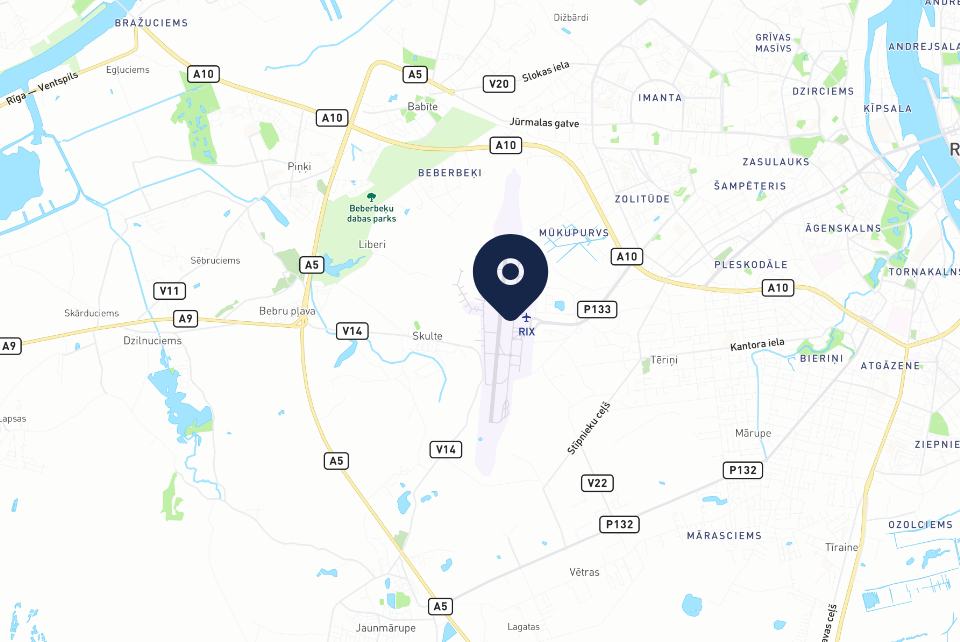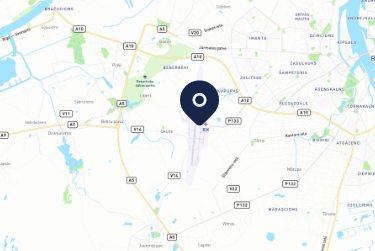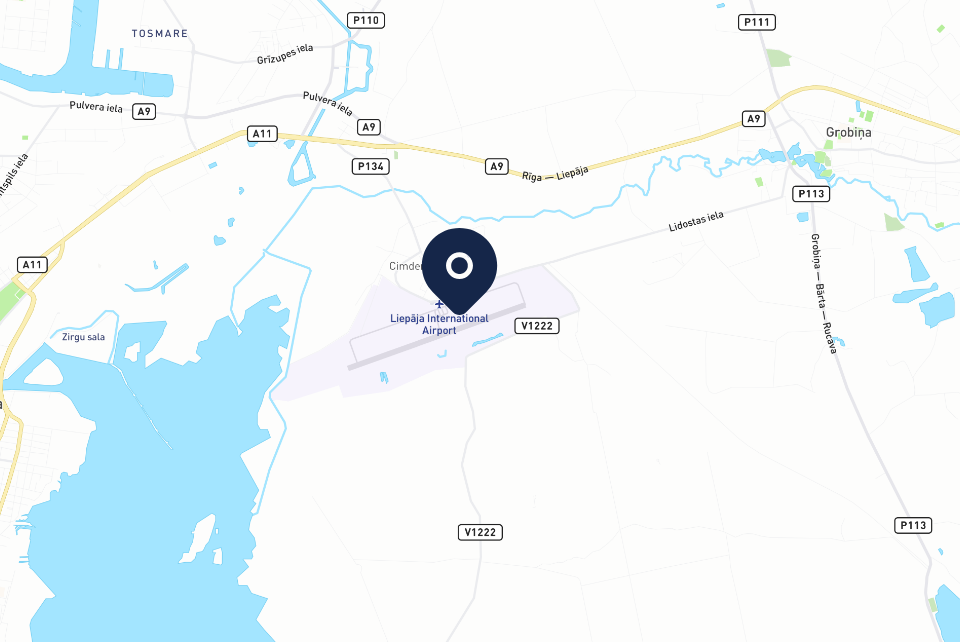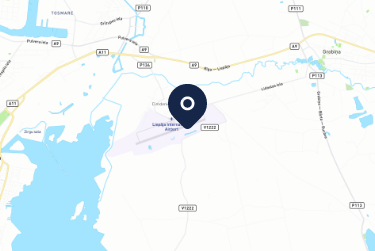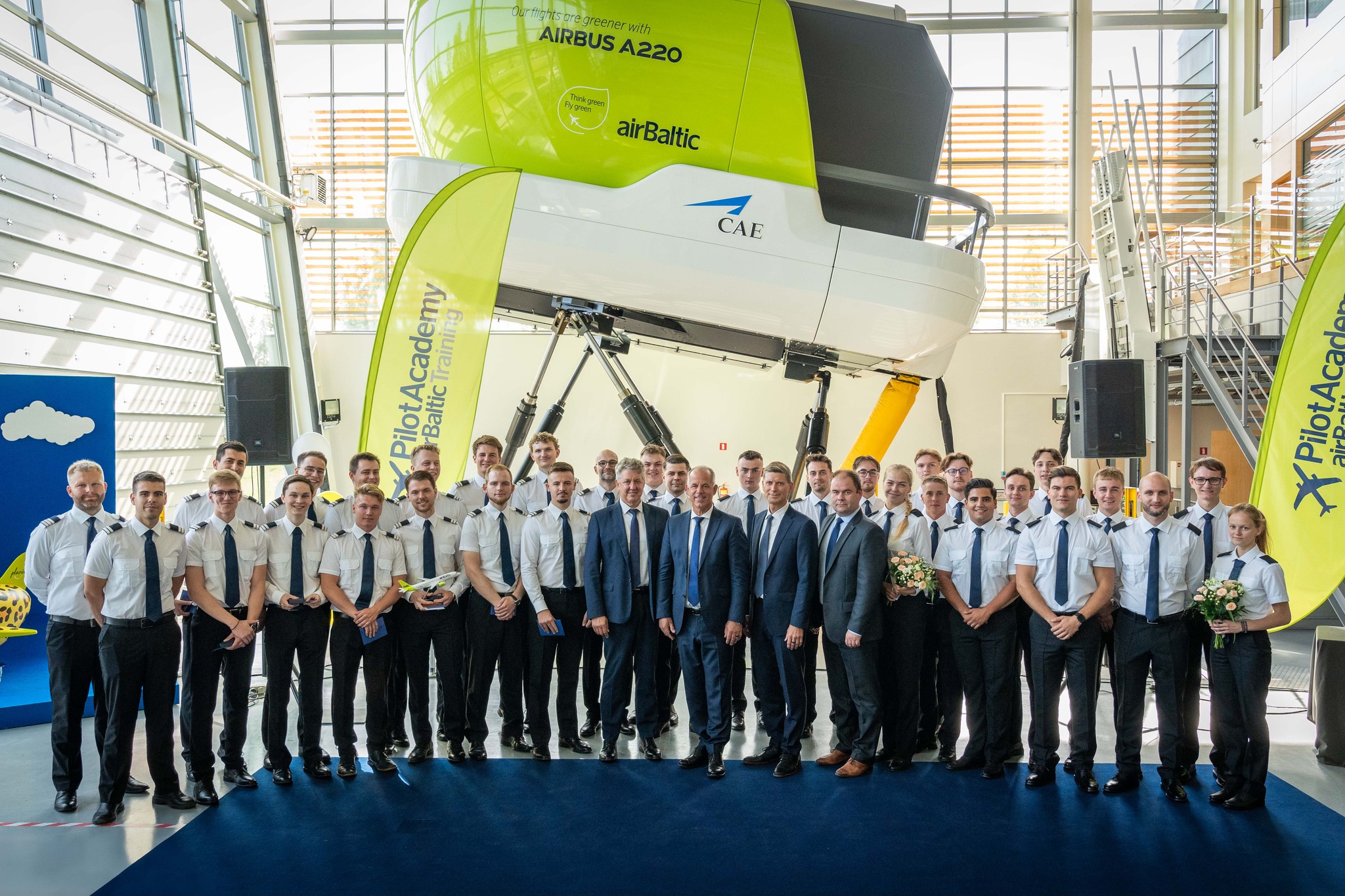
Today, 18 students graduated from the Pilot Academy of the Latvian national airline airBaltic, receiving a commercial pilot license upon completion of the full-time airline transport pilot program. This latest group of graduates marks a significant milestone for the academy, as it proudly celebrates its 100th graduate. Additionally, the 23rd group of 15 students has already begun their professional pilot studies.
Martin Gauss CEO and President of airBaltic: “We are proud to see and congratulate not only the 18th latest graduates of the Pilot Academy but also to celebrate our 100th graduate. This is a remarkable milestone in our journey to develop world-class aviation professionals the latest graduates of the Pilot Academy. Several of the new graduates will begin additional training this month, preparing to join the airBaltic team soon. Having well-trained personnel is a crucial element for the success of any airline.”
“Moreover, we extend our congratulations to the young and motivated students of the 23rd group, who embarked on their educational journey today. As airBaltic continues its development and works toward operating 100 aircraft by 2023, having such dedicated individuals will be key to achieving our future goals,” Gauss added.
The graduates represent countries such as Austria, Finland, France, Latvia, Lithuania, and Spain, while the new group includes students from Finland, Latvia, Lithuania, the Netherlands, and Sweden.
There are 136 active students at the airBaltic Pilot Academy at the moment. Most of them are from the Baltic countries, however, there are students also from other EU countries such as Denmark, Germany, France, Finland, Spain and Italy among others. Overall, more than 10% of airBaltic Pilot Academy students are female. As for now, 112 students, after graduating, have joined airBaltic.
Students of the airBaltic Pilot Academy have to cover the costs of ATPL theory studies and 45 flight hours, costing EUR 15 000. After passing airBaltic pilot assessment and becoming an employee of the company, the airline will provide financing (loan) for the rest of the studies.
Additionally, airBaltic is set to expand its training capabilities with the arrival of a second Airbus A220 full flight simulator later this year. Scheduled for delivery in the fourth quarter of 2024, the new simulator will significantly enhance the airline’s ability to train and maintain the qualifications of its growing number of pilots, supporting both the airline’s fleet expansion and the continued development of its Pilot Academy.
More information about the Pilot Academy: www.pilotacademy.com.
About airBaltic:
airBaltic (Air Baltic Corporation AS) is the leading airline in the Baltics and one of Europe’s fastest growing carriers. As a hybrid airline, it leverages the upsides of both traditional network and low-cost carriers. Through a network of more than 130 routes from Riga, Tallinn, Vilnius, Tampere and, seasonally, Gran Canaria, airBaltic connects the Baltics with over 70 destinations across Europe, the Middle East, North Africa, and the Caucasus.
Founded in 1995, today airBaltic operates one of Europe’s youngest fleets, consisting of 48 Airbus A220-300 aircraft, and employs over 2 600 professionals.
The company is majority-owned by the Latvian state, which holds a 97.97% stake, with the remaining 2.03% owned by private shareholders.
airBaltic’s commitment to excellence is recognized by numerous prestigious awards including the Best Airline in its region by Skytrax for three consecutive years. In 2022, the International Air Transport Association (IATA) recognized airBaltic with the Diversity and Inclusion Team Award, and in 2023, the company received the APEX Passenger Choice Award for Best Cabin Service in Europe. In 2024, the airline was awarded the PROS AI Innovator Award for leveraging AI to drive transformative outcomes and optimize operations.
airBalticTraining, a subsidiary of airBaltic, is a training facility offering a wide range of aviation training services in its modern and purpose-built training centre in Riga, Latvia. It was established in 2010 and since then each year provides training to approximately 3 000 professionals from across the world – more than 1 500 pilots, almost 1 000 cabin crew members and several hundred of ground handlers, cargo agents, security personnel and others.
